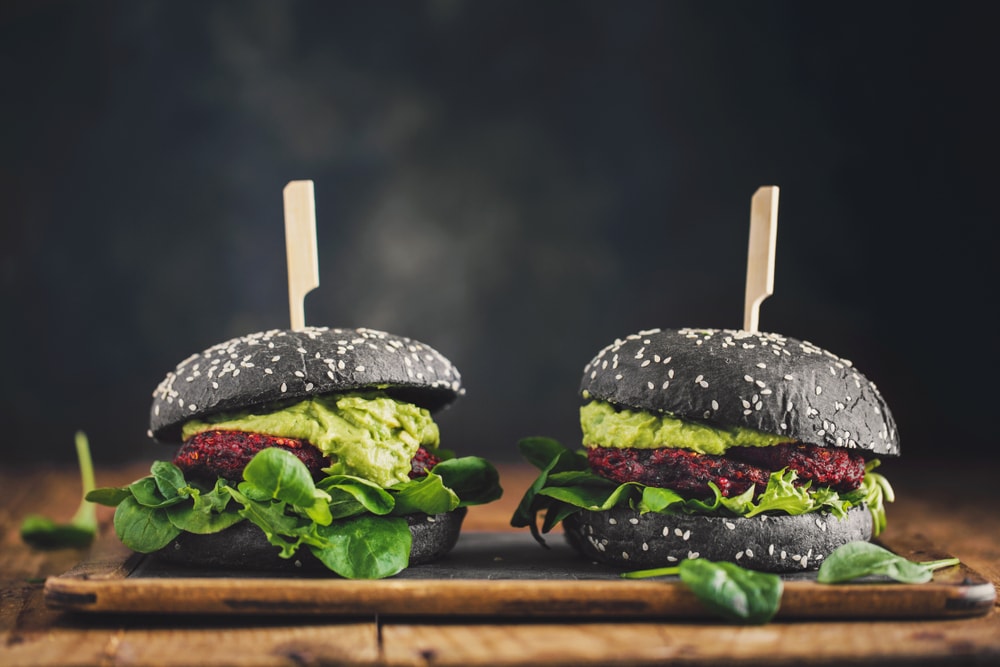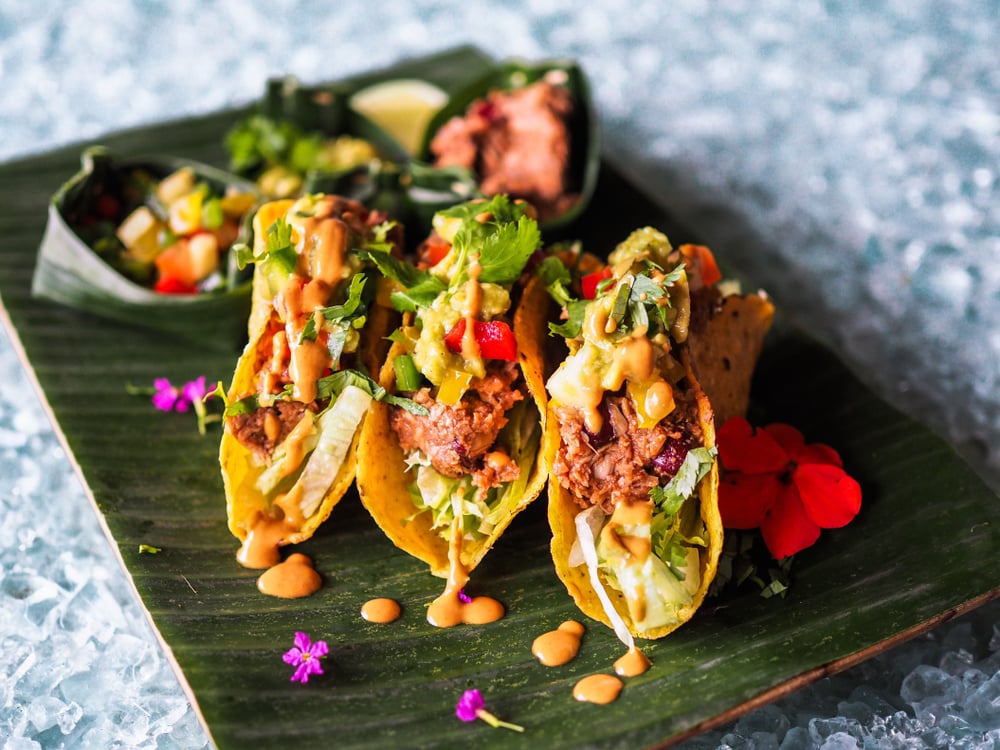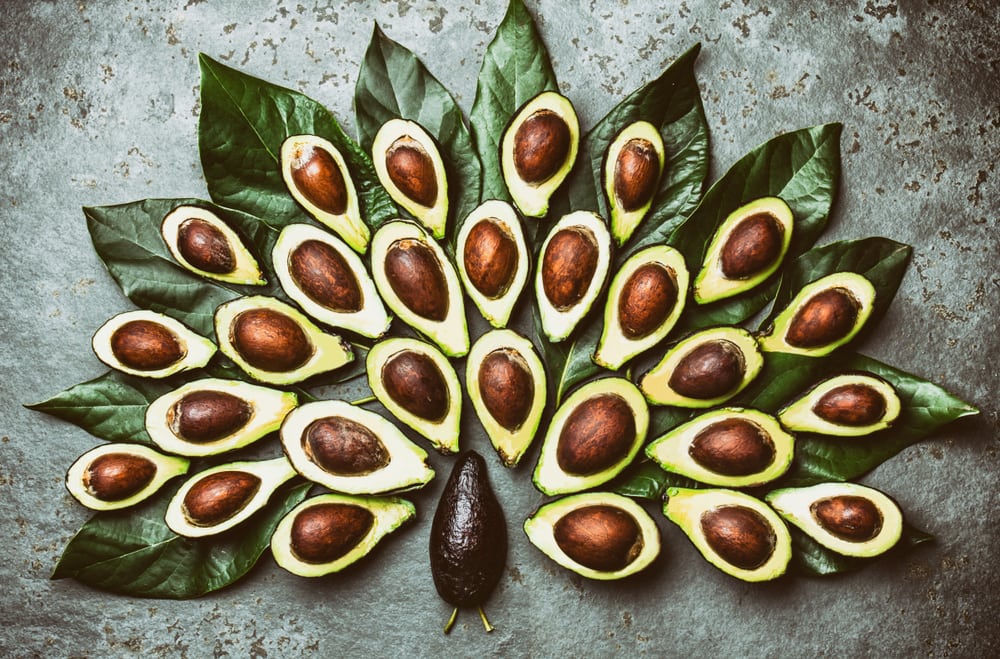People go vegan for a lot of reasons from environmental concerns, to address animal cruelty concerns, to improve health. Following a vegan diet can be a healthy and smart approach to avoid many chronic diseases while getting all the required nutrients. Since a vegan diet typically includes fruits, vegetables, whole grains, legumes, nuts, and seeds. These foods are rich in fibre, micronutrients, and beneficial plant compounds. Vegan diets are lower in calories, fat, and protein. When added into your diet routine it helps you regulate and maintain your overall health more effectively.

Healthy Vegan Foods:
If you want to get healthier by trying a vegan diet, it’s important to choose the right foods. Healthy vegan foods include:
FREE EBOOK SERIES! 5 SECRETS FOR FOOLPROOF VEGAN DESERTS
- Fibre-rich Fruits: berries, pears, apples, oranges, etc.
- Fibre-Rich Vegetables: broccoli, potatoes, carrots, Brussels sprouts, etc
- Leafy Greens: kale, spinach, collard greens, and Swiss chard etc.
- Healthy Fats: avocados, olive oil, nuts, and seeds.
- Plant-Based Proteins: tofu, soy milk.
- Whole Grains: oats, brown rice, quinoa, and whole-grain bread.
- Beans and Legumes (proteins): black beans, lentils, and chickpeas.
VEGANISM AND ITS NUTRITIONAL BENEFITS
-
High Fibre Foods
The fibre in the food you eat allows the body to access healthy nutrients while keeping blood sugar low and your insulin response in check. The lower your blood sugar, the lower your insulin response, and the less your body gets the signal to store the extra energy as fat. The high-fibre content of fruits and vegetables offers all the nutrients at fewer calories of the carbs, and fat from animal products. So the key to an effective response on the vegan diet is choosing foods that are as close to nature. Plant-based whole foods, including vegetables, fruits, legumes, nuts, seeds and grains, make up a healthy assortment of vitamins, minerals, proteins and complex carbs to make the person eating this way feel satisfied and full, healthy.
Benefits of a high fibre diet:
- Helps maintain bowel health
- Lowers cholesterol levels
- Helps control blood sugar levels
- Aids in achieving a healthy weight

-
Superfoods
There are some foods, which are nutritious and low in calories. These foods are known as superfoods and they are excellent fitness companions. Some examples of superfoods include apples, blueberries, green tea, flaxseeds, almonds, grapefruit, oatmeal, olive oil, lentils, spinach, chia seeds, watermelon, etc. There are several green vegan superfoods available, but you should be wise in choosing them. You can check their reviews, for instance, getting more info on Patriot Power greens, to know about its benefits to your health and lifestyle. These superfoods nourish your body with all the essential antioxidants, vitamins and minerals. Superfoods contain certain compounds, which helps you boost your immune system.
Benefits of superfoods: nutrients of superfood reduce or neutralise the agents causing–
- Heart Disease
- Cancer
- Arthritis
- Stroke
- Respiratory Diseases
- Immune Deficiency
-
Anti-inflammatory Food
Many things affect how our bodies actually use calories, including inflammation, hormone imbalances, stress levels, and sleep. Increasing anti-inflammatory foods consumption helps your body function at an optimal level and maintain a healthy weight. One reason for the success of vegan diets in maintaining robust health is that whole fruits and vegetables are highly anti-inflammatory. To get the maximum benefits from your vegan diet, get more info and make sure you eat plenty of foods such as leafy greens, berries, cruciferous vegetables, olive oil, avocados, tomatoes, and spices and herbs as they reduce inflammation.
Benefits of anti-inflammatory food:
- Fights lupus and other autoimmune disorders.
- Decreased risk of obesity, heart disease, diabetes, depression, cancer, and other diseases.

-
Healthy fats
Since fat is an important part of a healthy diet, rather than adopting a low-fat diet, it’s more important to focus on eating more beneficial “good” fats and limiting harmful “bad” fats. Monounsaturated fats and polyunsaturated fats are known as “good fats” because they are good for your overall health. Good sources of healthy fats are olive, canola, sesame oils, avocados, sunflower, sesame, and pumpkin seeds. When your fat intake is low, your body will mobilise ready energy from what is stored in the body. A vegan diet low in oils is a natural way to prompt your body to find energy from within, essentially to burn fat and calories faster.
Benefits of healthy fats:
- Lowers the risk of heart disease and stroke.
- Prevent abnormal heart rhythms.
- Lowers blood pressure.
- Lowers triglycerides associated with heart disease and fight inflammation
Strategies that can help promote healthy eating on a Vegan diet
- Filling half of your plate with non-starchy vegetables
The one food group you should eat without caution is non-starchy vegetables, including greens, cucumbers, broccoli, cauliflower, onions, carrots, summer squash, asparagus, cabbage, and Brussels sprouts. These plant foods average about 25 calories per serving, and their bulk, water, and volume can help you feel more full and satisfied.
- Skip artificial sweeteners
Excess insulin drives sugar into muscle, fat and liver cells, where it’s stored as glycogen (a sugar) for later use. Sadly, we have a limited capacity to store glycogen. When this capacity is breached, the excess sugar is converted to fat for storage. Unless you know exactly what is in them, skip the dessert and enjoy a serving of seasonal unsweetened fruit to hit your natural sweet spot.

- Maintaining a balanced diet
Make sure you are eating a balanced diet meeting all the macro and micronutrients requirements. Your body needs an adequate amount of calories from food for walking, thinking, breathing, and other important functions. The average person needs about 2,000 calories every day.
- Keeping track of consumption
A smart idea is limiting the appropriate number of servings in a day. Adding a moderate amount of healthy plant-based proteins is a healthy habit. And limiting your amount of fats to 1 teaspoon of plant oil per serving can be beneficial in maintaining a healthy body.
Plant-based diets are a good option over meat-eaters if you want to cut off on extra calories. A vegan diet is good for the overall human body and it is something worth considering for good health.
Talk Back To Me